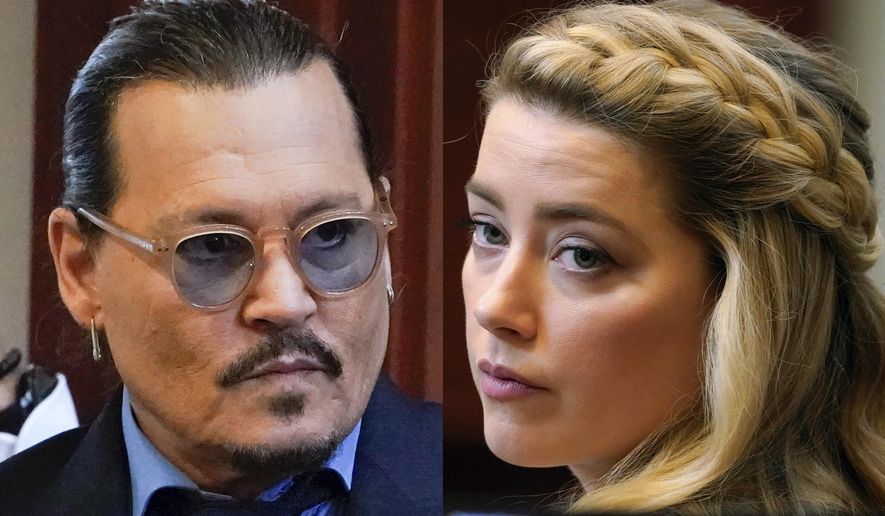OPINION:
Eight years ago I drove from the Washington Times newsroom to the University of Virginia to investigate a story published by Rolling Stone that said a college fraternity gang-raped a freshman named Jackie. Upon my arrival, students told me they believed Jackie because they weren’t “rape-deniers.”
Rape deniers are people who don’t give the accuser the benefit of the doubt, they explained. Soon, a handful of journalists uncovered evidence proving Rolling Stone’s reporting was wrong, and as a result, we stopped Jackie’s false story from destroying the lives of several innocent boys.
The imminent #MeToo movement devolved into an inquisition that labeled anyone recognizing the presumption of innocence as anti-victim. Notions of due process and the right to have a trial by jury in a court of law became incidental to mob rule in the court of public opinion. A moral panic reminiscent of the Salem Witch Trials ensued. Anyone accused was treated as if they were guilty — even then-Supreme Court Justice nominee Brett M. Kavanaugh.
When the Johnny Depp trial started, many wondered why he would risk more humiliation. I told them when a person is falsely accused, they will risk almost anything to reclaim their honor and identity. That’s what innocent people do.
After hearing the evidence, I believe this is the case for Mr. Depp, whose ex-wife, Amber Heard, signed her name to a Washington Post column that said she was “sexually assaulted” and endured “our culture’s wrath” for speaking against “sexual violence.” Mr. Depp asserts that although she did not reference him by name, a reasonable person could infer her article was targeting him.
I say Ms. Heard “signed her name” because it turns out she did not write the substance of the op-ed. Attorneys representing the ACLU did — after Ms. Heard made a $3.5 million pledge and received an appointment to serve as an ambassador for women’s rights. The op-ed was published three days before Ms. Heard’s new film, “Aquaman,” was released.
It was the perfect marketing plan. On the eve of a film release, an attractive young actress starring as a superhero reveals her painful story to heroically crusade for victims while building her new profile as an activist and all for the low price of destroying the reputation of one white male. Exiled from Hollywood, Mr. Depp’s extraordinary career crumbled as he was made to feel as if he should run and hide while the ACLU hailed his accuser for her courage.
To Mr. Depp’s credit, he did not run or hide. He decided it was worth risking everything to hold his head high even if it meant more backlash. He used the Constitution’s tools of due process to finally have a fair trial in a court of law governed by the rules of civil procedure and evidence — instead of relying on the devices of rumor and suspicion in the tabloid court of public opinion.
And during this six-week trial, we learned much from the evidence.
First, Mr. Depp’s lawyers raised valid concerns that some of the photos Ms. Heard took to show how her face bruised over time appear to be same photo — just digitally edited by manipulating the coloration.
Second, in Ms. Heard’s recordings she was the pursuer during arguments, never the other way around. When Mr. Depp told Ms. Heard he was evading her to cool things off, she actually complained his running away made their problems worse. She also insulted his manhood to reengage and provoke him. This is characteristic of an aggressor, not a victim.
Third, and most telling, was the absence of evidence. Despite her habit of regularly documenting arguments and her purported injuries, Ms. Heard presented no evidence to corroborate her story that Mr. Depp brutally forcefully penetrated her with a vodka bottle, making her bleed.
Mr. Depp did have a drug addiction problem and he may have acted abusively — or been pushed to a breaking point by Ms. Heard’s aggression — at times. But Ms. Heard went way beyond accusing Mr. Depp of abuse. Her article claims she was a victim of “sexual assault.” Still, her behavior after her alleged rape seems inconsistent with such trauma. Her subsequent recordings reveal no signs of anger, fear or trauma. In fact, she never even mentions it despite airing other, lesser complaints.
Both parties sounded believable when testifying. But when Ms. Heard said, “I have the right to say what happened … to own my story and my truth,” she misfired. There is no such thing as “my truth.” There is only one truth. We may never know the whole truth, as is the case with most trials. But the law requires jurors to view the totality of the evidence by the standard of a reasonable person, and there is no evidence beyond Ms. Heard’s testimony Mr. Depp sexually assaulted anyone.
During my time covering the Kobe Bryant sex assault case, I witnessed a nationwide sports culture cruelly terrorize the alleged victim. Ms. Heard has expressed understandable concerns that Mr. Depp’s fans have harassed and intimidated her. This is another unacceptable outgrowth of mob rule that must stop. No one deserves that kind of treatment.
Mr. Depp’s lawsuit took courage. He sent a message that verdicts should be adjudicated in courts of law — not public opinion. Anything less is un-American and inconsistent with the Constitution of the United States. It’s time for America to restore due process — and respect the presumption of innocence.
• Jeffrey Scott Shapiro is a former Washington prosecutor who served as a senior U.S. official from 2017-2021. He now serves on the editorial board for the Washington Times.




Please read our comment policy before commenting.